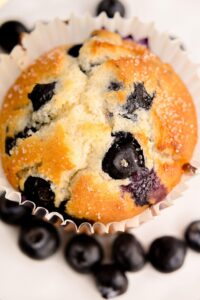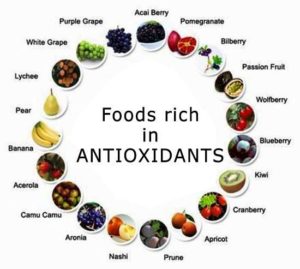Being anti-inflammatory has been the talk of the town in the world of nutrition. The real question is, what does it mean to be anti-inflammatory and what is inflammation.
Inflammation is part of the body’s response to defending itself. The immune system will recognize stimulants that are harmful and unfamiliar in the body then fight it to undergo a process of healing. It all comes down to the two types of inflammation: chronic or acute.
The biggest difference between the two types of inflammation is the time span of the onset. Chronic inflammation is said to go on for months to years while acute can be categorized as sudden and temporary. If goes unchecked, health problems can erupt. This will explain the information needed on inflammation and tips for eating habits to help it.
There are many different reasons that can be the cause of inflammation. The reasons listed are one that we can and can’t control which can include diet choices, stress, smoking/alcohol use, infections, and allergens.
Making lifestyle changes, such as food choices, can lower the chances of chronic inflammation. Food choices can have a major impact of inflammation levels and as a result, your body is affected.
Here are some suggestions to help reduce inflammation with nutrition:
- Eat your fruits and veggies: have it as colorful as you can. Each can carry different values and benefits to the body.
- Reduce sugar intake: avoid sugary drinks such as soda and juices. Limit desserts and other foods that contain a high number of added sugars.
- Add omega-3 into your diet: These foods include fatty fish such as salmon and sardines. Other options include chia seeds and walnuts.
- Increase fiber intake: fiber is great for our gut, and we aim for about 25 grams a day for women and 38 grams a day for men. There are two different types to pay attention to as a combination of both:
- Insoluble: cannot be broken down and provides the bulk to our stool due to water not being able to be absorbed. It will help keep our digestion moving which help make the bowel movements soft.
- Soluble: can be broken down which can absorb water to form a gel. It will help keep you more satisfied after a meal and regulates blood sugar levels. It helps balance hormones, cholesterol, and supports good bowel movements.
So what can you do TODAY to reduce the risk of inflammation?
Perhaps try a new recipe with an excellent source of fiber and antioxidants:
High Fiber, High Protein Blueberry Muffins 
Ingredients:
1 cup soy flour
1 cup quick oats
1 cup wheat bran
1⁄2cup whole wheat flour
1⁄2cup ground flax seeds
2 teaspoons cream of tartar
1 teaspoon baking soda
2 tablespoons cinnamon
4 egg whites
1 cup 1% low-fat milk
3⁄4cup low-fat plain yogurt
1⁄4cup honey
1 cup frozen blueberries
Directions:
Preheat oven to 400 degrees. Spray a 12-cup muffin tin with non-stick cooking spray.
Combine all dry ingredients in a large bowl and make a well in the middle.
Combine all wet ingredients in another bowl and mix well.
Pour wet ingredients into well and mix slightly. Add berries and mix until just combined. Don’t over mix.
Fill muffin cups equally with batter and bake for 20 minutes. Remove from oven and cool.
ENJOY!!





